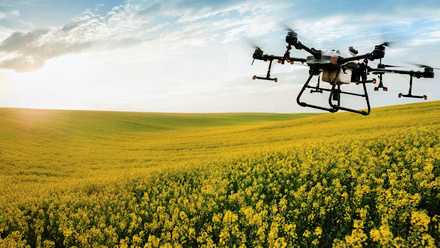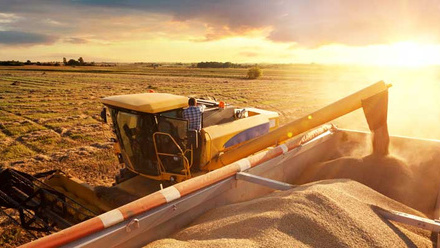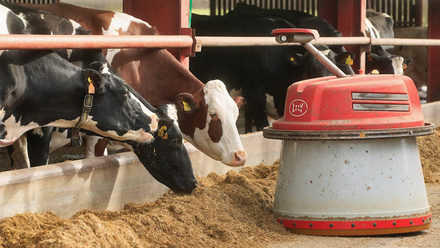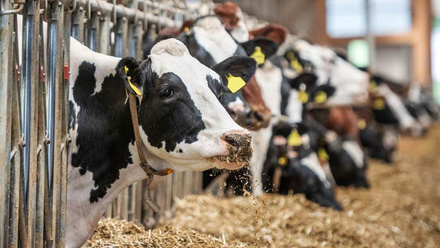Scottish agriculture industry calls for “essential” precision breeding technology tools
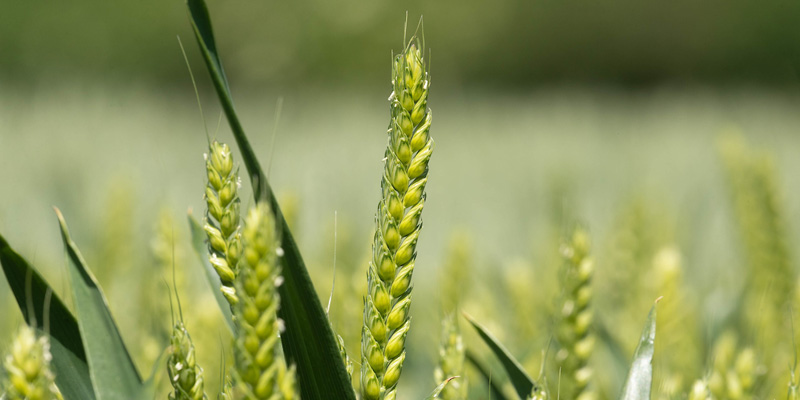
- Scotland risks being left behind on precision breeding policy as EU and others press ahead
- Gene editing offers “climate resilient crops” to support national food security
- Divergence with UK and global partners risks trade friction and added cost
The Agricultural Industries Confederation (AIC) Scotland is leading food and farming industry calls for the Scottish Government to drop its opposition to precision breeding technology, allowing the nation’s farmers and crofters to reap the benefits of gene-edited crops.
The agri-supply trade association AIC Scotland has joined forces with the NFU Scotland (NFUS) and supply chain organisation GB Potatoes to urge the Scottish Government to unlock the potential of precision breeding for crops by passing legislation equivalent to that already enacted in England in 2023.
Crops including wheat, barley and potatoes developed using precision breeding techniques can be made to better withstand extreme weather events such as flooding or drought driven by climate change, as well as having a greater resistance to pests and disease.
In a letter co-signed by AIC Scotland, NFU Scotland and GB Potatoes sent to the Cabinet Secretary for Rural Affairs, Land Reform and Islands Mairi Gougeon MSP this week, the industry bodies call on the Scottish Government to set up an independent expert working group with industry to consider precision breeding technology.
The group would assess the range of issues and evidence covering impacts on EU alignment and trade, the effect on agricultural productivity, scientific application, comparative international regulatory developments, and the cost of enforcing divergent gene editing policies.
With many nations and trading blocs such as the EU, Canada, USA, Argentina and Australia having either passed or seeking to pass precision breeding legislation, the letter argues that it is imperative Scotland now does the same to make sure the nation’s farmers and wider rural economy are not left behind in this vital area of innovation.
AIC’s Chief Executive Robert Sheasby said: "Access to precision breeding technology is essential for Scottish agriculture, meaning it can become more resilient to the impacts of climate change.
"Given that secondary legislation to implement the Precision Breeding Act for plants in England is expected to be laid in Westminster soon – and that the EU and other countries are progressing with their own laws – farmers, growers, crofters and agri-supply businesses in Scotland are set to be at a competitive disadvantage if nothing changes.
"Divergence with our trading partners and markets on precision breeding policy is a major concern for our industry as it would create extra cost and friction for the supply chains which make up our food system. That is why we are calling on the Scottish Government to establish an independent expert working group on this priority issue."
Martin Kennedy, NFU Scotland President said: "As an industry, we believe that the Scottish Government cannot afford to ignore the vast potential benefits of precision breeding technology.
"Precision breeding technology has the potential to play a key role in contributing to key Scottish Government policies, including reducing emissions from agricultural production, growing the Scottish agricultural economy and underpinning national food security by ensuring resilient domestic food and feed supply. We look forward to having a constructive dialogue with Government on this matter."
Scott Walker, Chief Executive of GB Potatoes, said: "Growers in Scotland face a unique set of pest and disease pressures arising from the climate, but we have the research institutions and plant breeding businesses to help address these.
"Precision breeding technologies allow plant breeders to rapidly breed more climate resilient varieties of potatoes and other staple crops for Scottish agriculture, improving yield reliability and resource efficiency."
ENDS
About AIC
As the UK agricultural supply industry's leading trade association, the Agricultural Industries Confederation (AIC) represents businesses in key sectors within the supply chains that feed the nation.
Its Member businesses supply UK farmers and growers with the animal feed, fertiliser, seed, crop protection products, trusted advice and quality services that are essential to producing food, as well as trading crops and commodities across the globe.
Formed in October 2003 by a merger of three trade associations, today AIC has over 230 Members in the agri-supply trade and represents £17.8 billion* turnover at farmgate.
AIC works on behalf of its Members by lobbying policymakers and stakeholders, delivering information, providing trade assurance schemes, and offering technical support.
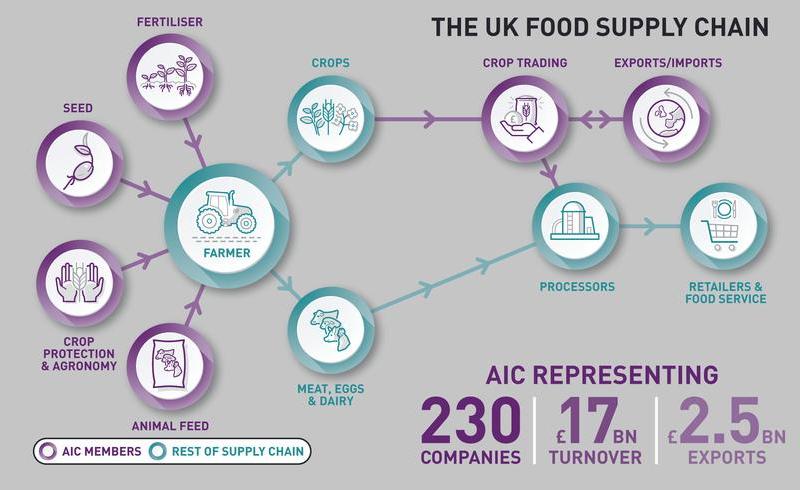
AIC Services manages a range of services, including Trade Assurance Schemes and professional registers recognised by the UK Government as essential means to underpin feed and food safety alongside fertiliser security.
These schemes and professional registers include:
- Trade Assurance Scheme for Combinable Crops (TASCC)
- Feed Materials Assurance Scheme (FEMAS)
- Universal Feed Assurance Scheme (UFAS)
- European Seed Treatment Assurance (ESTA)
- Fertiliser Industry Assurance Scheme (FIAS)
- Feed Adviser Register (FAR)
- Renewable Energy Directive (RED)
- Forage Assurance Scheme (FAA)
- AIC Services Palm Oil Credit Scheme (APOCS)
*According to a 2023 survey of AIC Members.
Press Contact
Wendy Ford, Communications Manager, AIC
+44 (0)1733 385230
[email protected]



